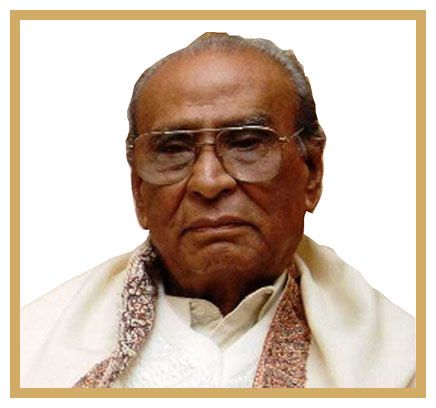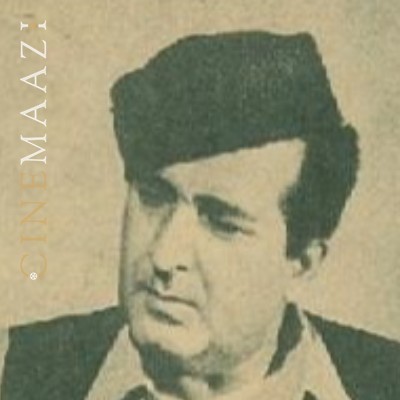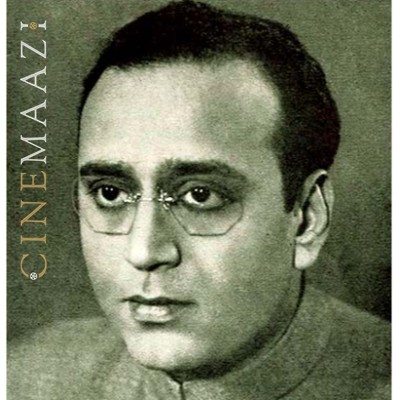Dwijen Mukherjee

Subscribe to read full article
This section is for paid subscribers only. Our subscription is only $37/- for one full year.
You get unlimited access to all paid section and features on the website with this subscription.
Not ready for a full subscription?
You can access this article for $2 , and have it saved to your account for one year.
- Real Name: Dwijen Mukhopadhyay
- Born: 12 November 1927
- Died: 24 December 2018
- Primary Cinema: Hindi
Singer and music composer Dwijen Mukherjee (Dwijen Mukhopadhyay) carved a career that spanned more than six decades. A legendary artiste gifted with a resonant voice, he is revered as one of the greatest Rabindra Sangeet singers of all time. An accomplished singer of Bengali and Hindi film as well as traditional songs, he recorded more than 1500 songs of which approximately 800 are songs of Rabindranath Tagore. He also composed music for Bengali feature films and popular non-film Bengali songs. He was revered on both sides of Bengal — before and after Partition.
Born on 12 November 1927 into a well-to-do family in Kolkata’s Shampukur locality, it was a chance participation in a competition in college that opened the vista of music to him. He made his debut as a professional singer in 1944. The following year, he recorded his first set of basic Bengali songs from Megaphone Record Company. In 1946, he performed as an artist of All India Radio (AIR) and also started recording with HMV-Colombia Recording Company. Ten years later, in 1956, he would also render his popular songs, entertaining the soldiers of the Indian Army at Ladakh.
He trained in music from Bengal’s famous singers such as Shri Sushanto Lahiri, Pankaj Mullick, Santidev Ghosh, Santosh Sengupta, Anadi Ghosh Dastidar and Niharbindu Sen. Though he never had the opportunity to train in traditional Rabindra Sangeet at Santiniketan, he was an avid learner and was soon accepted as a great Rabindra Sangeet singer himself.
Introduced to the folk music of Bengal—as well as to Hindi film music—by the famous film music composer Salil Chowdhury, their friendship started in the late 1940s through their common association with IPTA. Together, the Dwijen-Salil collaboration would produce several Bengali masterpieces like Shyamal barani ogo konya, Klanti name go, Ekdin phire jabo chole, and Pallabini go sancharini among many others. They also worked on two Michael Madhusudan Dutt poems, namely Rekho Maa Dashere Mone and Ashar Cholone Bhuli, to create rare and wonderful tracks.
Dwijen Mukherjee would later go to Bombay to work with Salil Chowdhury in films. His duets with Lata Mangeshkar in films such as Madhumati (1958), Honeymoon (1960), Maayaa (1961) and Sapan Suhaane (1961) are evergreen. He rendered solo playback in Madhumati (1958), while Bengalis enjoy his compositions such as Pallabini go sancharinia, Shaymalbarani ogo kanya, Klanti name go and Ashar chalane bhuli to date. Some of his songs were also re-recorded by Salil Chowdhury.
While Mukherjee first came into the limelight by virtue of his voice that resembled the famous Hemanta’s, he was an excellent singer himself. What’s more, he also established himself as an accomplished Rabindra Sangeet singer. He devoted himself to interpreting Tagore's songs, attracting listeners both within and outside Bengal. He also performed Rabindra Sangeet in prominent Bengali films such as Kshudita Pashan (1960) which was based on a Tagore short story, and Sandhya Raag (1977), under the baton of renowned music directors Ustad Ali Akbar Khan and Pandit Ravi Shankar, respectively. Films like Kancher Swarga (1963), Bon Palashir Padabali (1973), and Wheel Chair (1994) also contain his popular renditions of Rabindra Sangeet. Word goes that legendary composer Sachin Dev Burman had advised him to concentrate more on Bengali songs. This led to him returning to Kolkata from Bombay.
To Mukherjee goes credit for his rendition of the well-loved devotional song Jaago Durga, for the musical play Mahisasura Mardini (The Annihilation of the Demon). This immensely popular radio programme is broadcast by All India Radio (AIR), Kolkata every year on the auspicious day of Mahalaya. This signature hymn heralds the beginning of the Durga Puja festival, and resonates with the entire Bengali speaking community in the world, its popularity enduring for more than 60 years.
In the course of his career, he performed before famous personalities such as Marshal Josip Broz Tito (President of Yugoslavia), Dr Sarvepalli Radhakrishnan (President of India), Pandit Jawaharlal Nehru (Prime Minister of India), and Indira Gandhi (Prime Minister of India), amongst others. A member of the Indian cultural delegation, he toured the Soviet Union and East European countries like Poland, Romania, Czechoslovakia, Bulgaria, and Yugoslavia. On invitation, he also performed in US, UK, France, Switzerland, Australia, Canada, Singapore and Bangladesh.
His expertise was valued across various boards and committees. He was a member of the expert committee as well as the selection committee at the Visva-Bharati Music Board in Kolkata. This Board was responsible for certifying the purity and authenticity of Tagore songs, sung by any artiste across the world. He was also a member of the expert committee of All India Radio (AIR), New Delhi which auditioned senior singers on the national level to promote them to the category of top grade artists of India. He also served as the external examiner for the post graduate course at Visva Bharati University, Shantiniketan, West Bengal. Besides creating a cultural organisation named Uttarayani to impart training in Rabindra Sangeet, he was also president of Bani Chakra College of Music, Kolkata.
Mukherjee was also part of the celebrations of the birth centenary of Rabindranath Tagore in 1961, as well as of the bard’s 150th birth anniversary celebrations in 2011.
Among the many awards he was conferred are the Bengal Film Journalists' Association – Best Male Playback Award for the Bengali film Ban Palashir Padabali (1973), the Debabrata Biswas Memorial Award (Lifetime Achievement), the Indira Gandhi Award in 1991, the Rajiv Gandhi Award in 1992, HMV Golden Disc on the 50th year of his musical career in 1994, the Indian Independence Day Golden Jubilee Award in 1997, the Uttam Kumar Award (Lifetime Achievement) in 2002, the Ananda Sangeet Puroskar (Lifetime Achievement) in 2003, the Mother Teresa Millennium Award in 2006, the SD Burman Award in 2007, the Pracheen Kala Kendra Award, Chandigarh in 2007, the Reliance Big FM Award (Lifetime Achievement) in 2010, the Banga Bandhu Award from Bangladesh, D. Lit (Hon.) by Kalyani University, West Bengal, the Sangeet Natak Akademi Puraskar, and the prestigious Padma Bhushan all in 2010. He was also conferred the Banga Bibhushan in 2011.
He was considered the last surviving colossus of Rabindra Sangeet after Hemanta Mukhopadhyay, who is considered the only other singer who sang both Rabindra Sangeet and other Bengali songs with equal ease and expertise.
Dwijen Mukhopadhyay passed away in Kolkata on 24 December 2018 following a prolonged illness. He was 91. He was survived by a son and a daughter. Mourning his demise, West Bengal Chief Minister Mamata Banerjee tweeted: “Huge loss for the music industry of #Bangla. This is also a personal loss. We had felicitated him with ‘Banga Bibhushan’ award in 2011. Condolences to his family and fans.” His mortal remains were kept at the city’s cultural centre Rabindra Sadan, for people to pay their last respects. His last rites were performed with full state honours.











.jpg)



